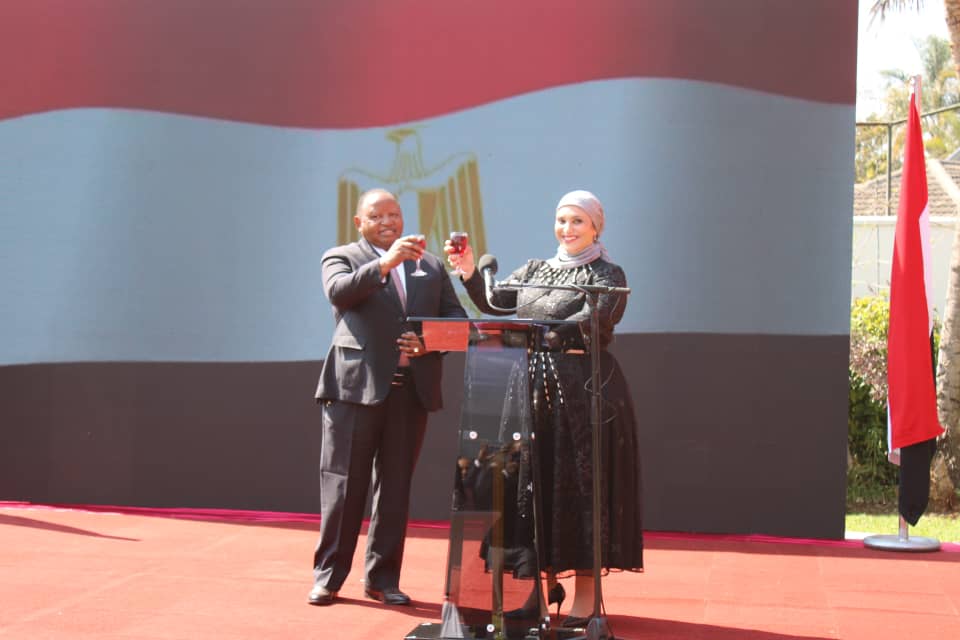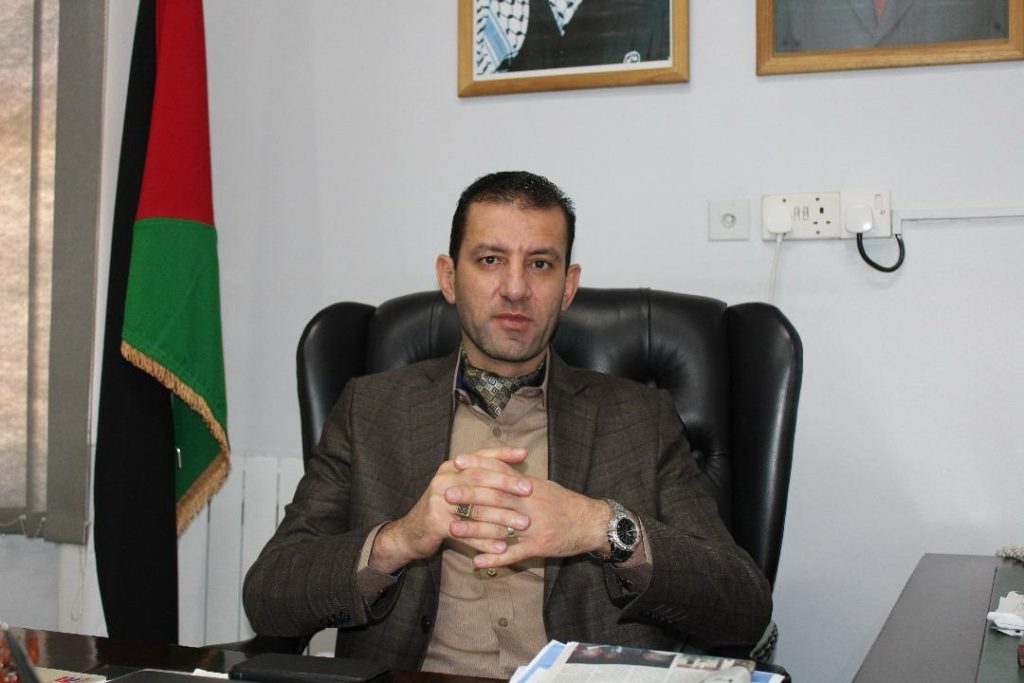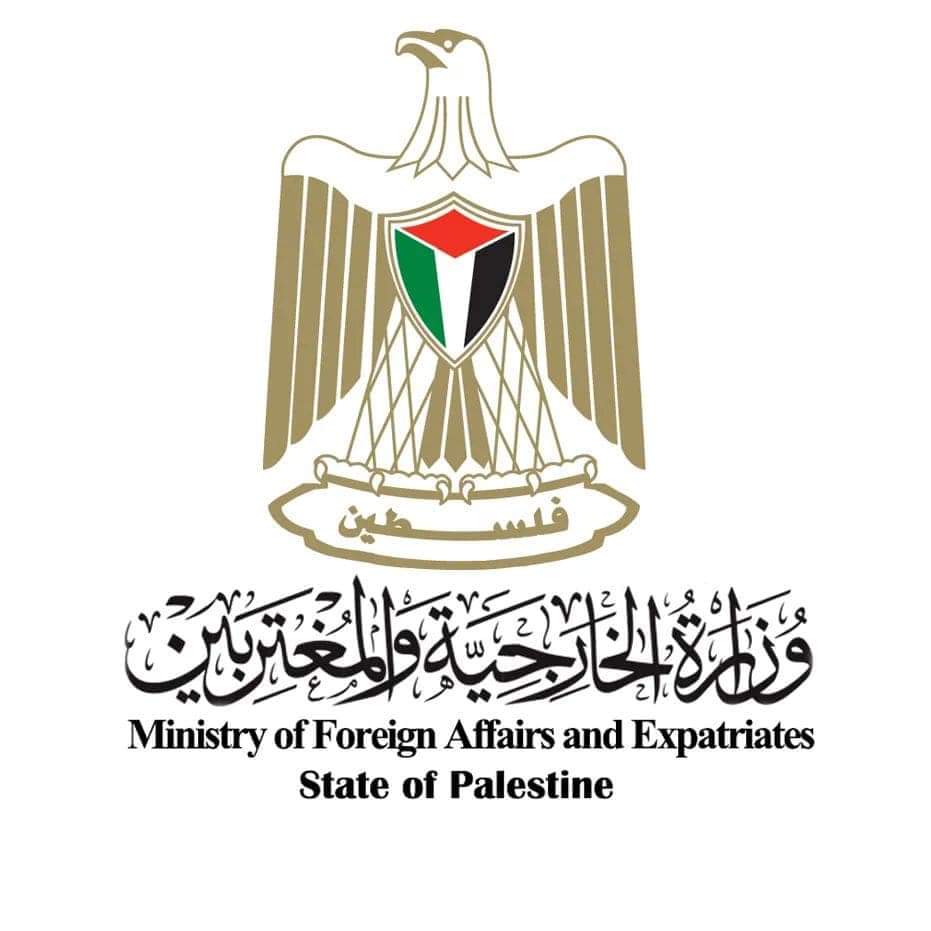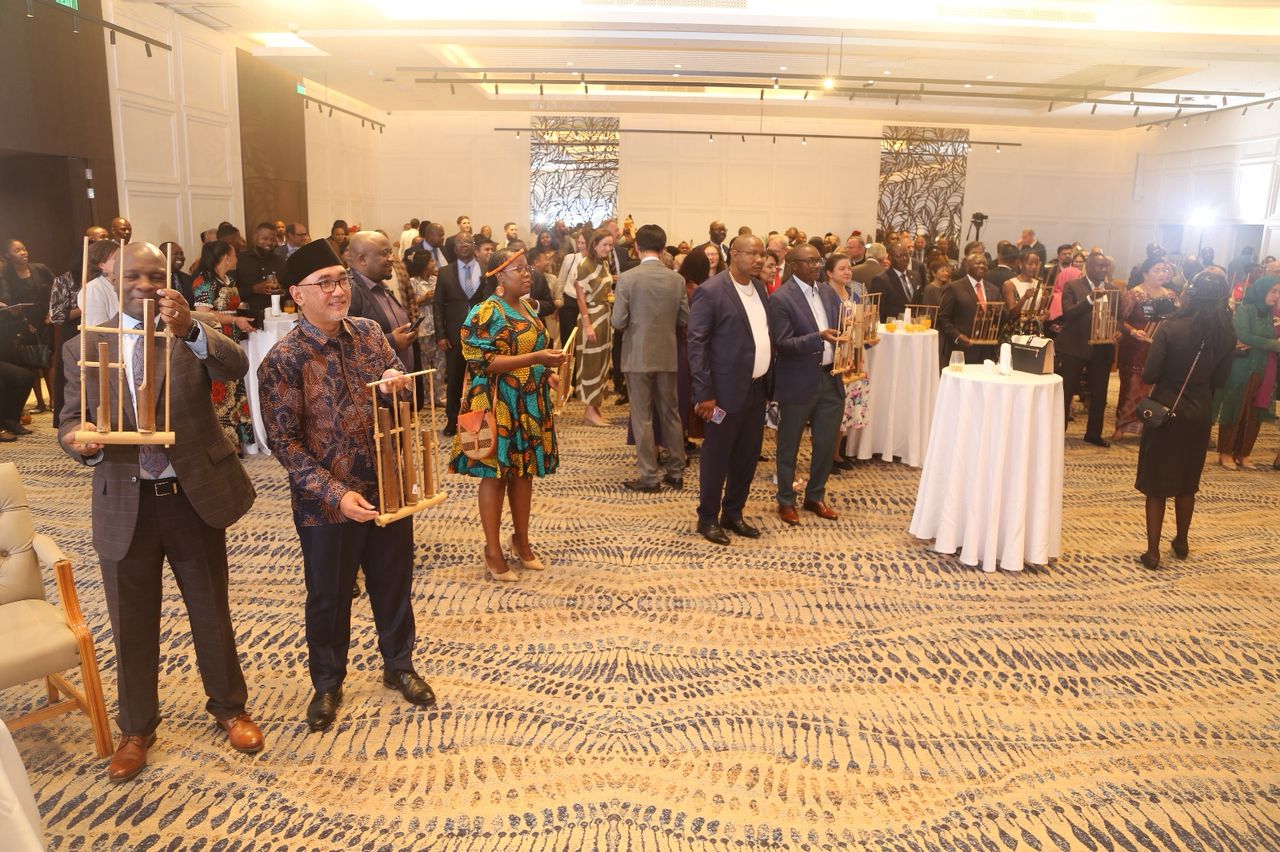
The Minister of foreign Affairs and International Trade, Dr Frederick M. Shava and The Ambassador of the Arab Republic of Egypt to Zimbabwe, Ms. Salwa Mowafi toast to continued fraternal friendship and co-operation in Harare
By George Swarei
Harare, Zimbabwe – In a concerted call for peace and stability in the Middle East, Zimbabwe’s Minister of Foreign Affairs and International Trade, Dr. Frederick M. Shava, and the Arab Republic of Egypt’s Ambassador to Zimbabwe, Ms. Salwa Mowafi, have urged for the implementation of a two-state solution to resolve the longstanding Palestine-Israel conflict. Their statements came during the Egypt National Day celebrations held in Harare, emphasizing the urgent need for diplomatic efforts to de-escalate the recent surge in violence.
Calls for Peace Amidst Rising Tensions
In their joint statement, Dr. Shava and Ambassador Mowafi highlighted the escalating violence in Gaza and the West Bank, calling for immediate international intervention to prevent further bloodshed. “Zimbabwe stands firmly with Egypt in calling for a two-state solution that guarantees peace, security, and mutual recognition for both Palestinians and Israelis,” Dr. Shava said. “The recent hostilities have underscored the critical need for a comprehensive and sustainable resolution.”
Ambassador Mowafi echoed these sentiments, stressing Egypt’s historical role as a mediator in the conflict. “Egypt has always been at the forefront of peace efforts in the region. We believe that a two-state solution, based on the 1967 borders with East Jerusalem as the capital of Palestine, is the only viable path to lasting peace,” she stated.
Comment from Palestinian Ambassador to Zimbabwe

Dr. Tamer Almassri, the Palestinian Ambassador to Zimbabwe
Dr. Tamer Almassri, the Palestinian Ambassador to Zimbabwe, welcomed the calls by Egypt and Zimbabwe, expressing appreciation for their support. “The unwavering support from Egypt and Zimbabwe is crucial in our struggle for justice and independence. The advocacy for a two-state solution, which respects the 1967 borders and establishes East Jerusalem as our capital, is a significant step towards achieving peace. We urge the international community to amplify these calls and take concrete actions to ensure the rights of the Palestinian people are upheld.”
International Efforts to De-escalate the Situation

In response to the escalating violence, international actors have intensified their efforts to broker a ceasefire and restart peace negotiations. The United States, under the Biden administration, has been actively engaged in diplomatic efforts, with Secretary of State Antony Blinken visiting the region to meet with both Israeli and Palestinian leaders. The U.S. has reiterated its support for a two-state solution, calling for immediate de-escalation and humanitarian aid to Gaza.
The European Union has also been vocal in its calls for peace, urging both sides to cease hostilities and return to the negotiating table. Josep Borrell, the EU’s High Representative for Foreign Affairs and Security Policy, stated, “The violence must stop now. We need a renewed commitment to a two-state solution that ensures the safety and security of both peoples.”
The Arab League, meanwhile, has been working through diplomatic channels to garner support for the Palestinian cause. The League’s Secretary-General, Ahmed Aboul Gheit, has called on the international community to hold Israel accountable for its actions and to pressure it into halting its military operations in Gaza.
Recent ICJ Ruling on Israel
Adding a significant dimension to the conflict, the International Court of Justice (ICJ) recently issued a ruling on the legality of Israeli settlements in the occupied Palestinian territories. The ICJ declared these settlements as violations of international law, citing the Fourth Geneva Convention, which prohibits an occupying power from transferring parts of its own civilian population into the territory it occupies.
The ruling, which came after a prolonged legal battle, has been hailed by Palestinian leaders as a major victory. Palestinian Authority President Mahmoud Abbas welcomed the decision, stating, “This ruling reaffirms our rights and the illegality of the occupation. We call on the international community to enforce this judgment and to support our quest for justice and independence.”
Israel, however, has rejected the ICJ’s ruling, with Prime Minister Naftali Bennett describing it as biased and politically motivated. “This decision disregards the complex realities on the ground and undermines the prospects for peace,” Bennett said. “We remain committed to ensuring the security of our citizens and will continue to defend our rights in the region.”
The Path Forward
The joint appeal by Zimbabwe and Egypt underscores the broader international consensus that a two-state solution is essential for lasting peace in the Middle East. This solution envisages an independent State of Palestine alongside the State of Israel, living in peace and security within recognized borders.
The United Nations has consistently supported this framework, with Secretary-General António Guterres calling for renewed efforts to achieve it. “The vision of two states – Israel and Palestine – living side by side in peace and security is still achievable. But it requires political will and courage from both sides and the support of the international community,” Guterres remarked.
As the conflict rages on, the humanitarian situation in Gaza continues to deteriorate. International aid agencies are struggling to provide relief to the thousands affected by the violence, with shortages of medical supplies, food, and clean water compounding the crisis. The UN Relief and Works Agency (UNRWA) has launched an emergency appeal for funding to support its operations in the region.
The statements by Zimbabwe and Egypt at the Egypt National Day celebrations in Harare reflect a shared commitment to peace and stability in the Middle East. Their call for a two-state solution aligns with broader international efforts to address the root causes of the conflict and to pave the way for a just and lasting resolution. As the situation remains volatile, the international community’s role in supporting dialogue and humanitarian aid is more critical than ever. The path to peace may be fraught with challenges, but the commitment to a two-state solution offers a beacon of hope for a future where Israelis and Palestinians can coexist in harmony.

